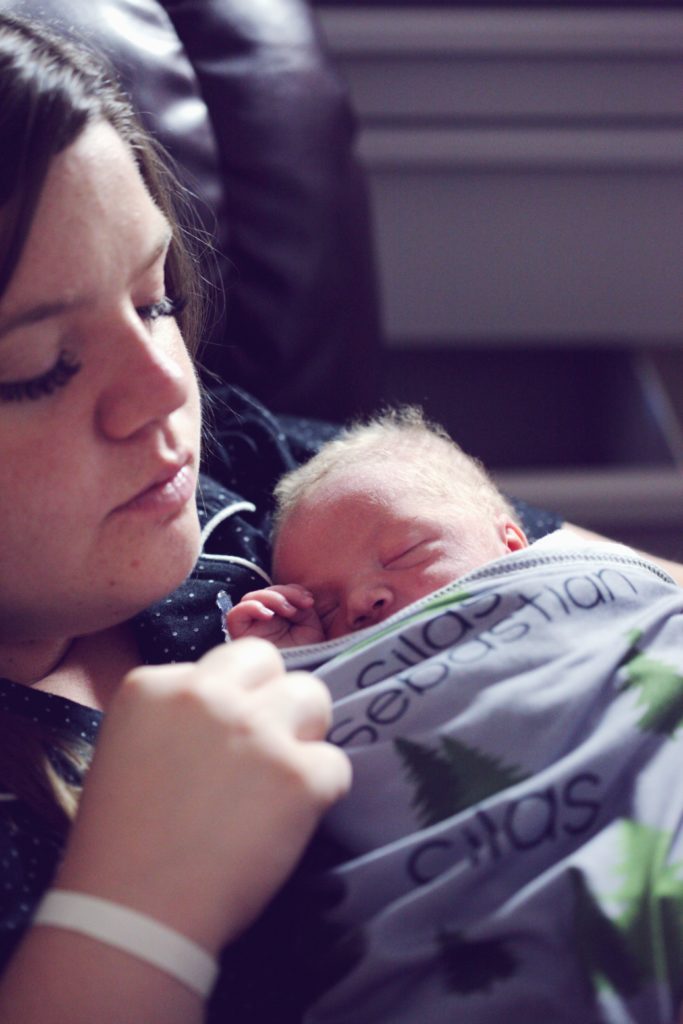
Just think about it. How far reaching is this one condition?
Sure people talk about being depressed with a casual tone. You get the feeling they feel crummy…but it seems to be their response to circumstances. And when circumstances change, they seem to forget they felt bad. But when you think about who’s affected by severe chronic depression, you think of people who don’t have the energy to get up in the morning. You think about people who are trapped in substance abuse and have grown to hate themselves. You think about people who are just tired. Of everything.
Let’s take a closer look at the people affected by severe chronic depression. Who are they?
Gary is one.

Gary worked hard his entire life. He worked tirelessly to help others improve their lives. He worked to inspire and comfort. But, when you’re in the business of helping people enjoy richer, more meaningful lives, there are always those few who spurn your efforts, and even come back to crush you, if they can. And sometimes it’s the one you believed in the most.
In Gary’s case, there were two of them. They robbed his house when he was away for the evening. Then, spread false stories attacking his integrity. And Gary was cut to the heart. After being robbed and betrayed, he was hurt, angry, disheartened. In fact he was shattered.
Even though he’d always been optimistic, and bounced back after disappointments, this time he utterly lost his footing. Shock and devastation swarmed around and within him. He lost his bearings…and withdrew into the quiet safety of his house.

He found himself acting strangely, behaving in ways he never had before.
Months went by. He ordered food from Amazon and avoided any human contact if at all possible. He didn’t answer the door, and friends gave up, one by one, and became absorbed with their own lives.
A relative helped him get in to see a doctor finally. He was diagnosed with Bipolar II Disorder. The doctor prescribed a medicine to help prevent the hypomanic episodes, but the depression and withdrawal didn’t improve much. Years went by and he settled into a routine of leaving the house maybe once a week. His warm, inviting personality became subdued and cautious.
Something needed to give. To help free him from the box he’d built around himself.
And thankfully something did …but we’ll get back to that in a moment.
And Who ELSE?
Dan is.

Dan had his first drink when he was 14, and was hanging out on a Saturday night with his brother’s friends. They were all 16 and 17, and after getting some six- and 12-packs of beer, they all went to the lake on a Saturday night and drank all they had. Some ended up vomiting, others passed out in the car. Dan did both. But he liked the way the beer made him feel, and he knew he’d be up for drinking more when he had the chance.
High school beer bashes led to frat party blow outs, and while he experimented with some other things when he had the chance, it was alcohol that became his “go-to” in good times and in bad.
At 42, he drank whenever he was free. He had managed to get through college with a degree and land a job that was steady, but nights and weekends were his time to reward himself — whether anyone was with him or not. He worked hard to earn the right to get smashed on Saturday night.
After marrying in his 20s…hoping for happily ever after… he found himself alone and single again in his 30s. So many fights about his drinking. She was just beautiful, and he was so proud to be seen out with her, but she was so critical.
Alcohol Addiction and Depression… A Dangerous Combination

Now in his 40s, Dan began to understand why. And he realized he was likely to spend his life alone and drunk, if something didn’t change. He’d actually tried to stop drinking but something always happened and he was back at it. He felt pretty defeated. It seemed to be bigger than he was.
Every day he dragged himself out of bed, and went to work. He was often hung over, but 25 years of this had helped him develop an armor that got him to work, helped him function well enough to not get fired, and then home again to repeat the habit of every other night of his life. He had come to hate his empty, dead-end life, and his empty, dead-end self.
Dan hadn’t enjoyed anything in his life in at least ten years. He endured, and barely existed. He had no purpose. No joy. He was the chair person for the Dan Hatred Club. It was hard to see any reason to keep living. He wondered how to stop without it hurting too much. He was convinced no one would notice if he was gone.
There’s more to Dan’s story.

And I want you to know what happened. A little later.
While it’s so true that many people are very ill, even disabled in some cases, with severe chronic depression, you can see that many have other illnesses that are complicated by depression.
Some people suffer with a complex combination of disorders, and diagnosis and treatment can be complicated, too. We talked about Gary and his traumatic experience, the depression and phobias that followed and led to his eventual confusing behaviors, and a Bipolar 2 diagnosis.
We talked about Dan, his early introduction to alcohol and the long term impact it had on his brain…and his life. How his drinking gave way to poor social function, and the inability to give his best to his marriage. Eventually he found himself in a self-destructive rut and didn’t know how to turn it around. Then the suicidal thoughts began.
So who else is devastated – and disrupted – by severe depression symptoms?
Cheryl is.
Cheryl is 26. She’d finished college and was working on her masters degree in forensic psychology when she found herself pregnant. She and her husband wanted children, but they weren’t sure when.
Still, she felt like she was carrying a miracle within her, and the couple set about learning all they could about pregnancy, their baby’s development, and child rearing. They wanted this to go perfectly. She would find a way to complete her masters degree. But she was determined to celebrate their child’s life.

Her pregnancy was hard at first, with morning sickness that seemed unrelenting. But around the 13th or 14th week she thought she might be feeling a bit better. She began to browse in baby stores, looking at the tiny clothes and trying to imagine her baby wearing them. Her clothes were also getting tighter, and she shopped to find some pants that were looser and more comfortable. It was all beginning to feel amazing, just thinking about this little person who was safely cradled and growing out of sight….but under her heart.
The weeks dragged by, and her excitement about her baby became almost too much at times. She and her husband began shopping for a bassinet, a crib…and a stroller. She learned about support meetings for breastfeeding mothers and attended as often as she could. There was so much to learn!
Weeks turned into months, and finally she was in her third trimester. Just 3 more months. Through her pregnancy her emotions were filled with excitement and joy. A sense of wonder seemed to give the whole world a glow.
Happy Times Preparing for Baby
She and her husband attended childbirth classes and toured the hospital. They practiced exercises and breathing patterns at home to try to truly equip themselves for the adventure of labor and delivery.
Then, when she was 41 weeks along, those Braxton-Hicks contractions everyone talked about began to get out of hand. Within a couple hours she was in the ER being checked out.
Finally, she was in labor.
Cheryl’s labor progressed normally the first 10 hours. Then, in spite of hard and nearly constant contractions she was no longer progressing. Her doctor confirmed his suspicions: the baby’s head was lodged at an angle in the pelvic region and couldn’t move forward. He called for a C-section.
Within 15 minutes she was wheeled into the operating room, and suddenly asleep. When she awoke, everything seemed strange. Then she remembered the labor, the baby, and oblivion.
Her husband was smiling and told her they have a beautiful baby girl. She felt too groggy to understand what he was saying. She blinked hard to try to clear her head. Her husband handed her a little bundle. She laid it in her lap. What was it?
As the fog cleared her head, her memory of the labor returned. Her new baby slept in her bundled blanket. And Cheryl put the pieces together. She had had a baby. She was sleepy because of emergency surgery. The baby couldn’t get out… But where was that baby?
Traumatic Birth Can Interfere with Bonding Between Mother and Child
She asked her husband, and he told her their baby was in her lap. But the bundle in her lap didn’t look like anyone she knew. It just didn’t feel real…somehow…

She felt no connection to this tiny human, in spite of her husband’s reassurance… She felt sure she would have recognized her own baby, right?
Cheryl found herself detached, stunned, disconnected from feeling like a mother. Her strange behavior puzzled her husband. Why didn’t she cuddle their beautiful baby girl? The nurses tried to help her breastfeed, but the baby only cried. Almost as if this baby girl could sense her mom’s disconnect.
Cheryl and her husband took their new baby home and named her Phoebe Mae. She desperately wanted to feel something good toward the baby. But, she didn’t. She couldn’t. All that anticipation for 9 months, and this is it? Endless exhaustion and sleepless nights? Where was the joy..?
Her behavior worried (and angered) her husband. He just didn’t understand his wife’s coldness. Was this damaging Phoebe? What damaged Cheryl to cause this?
Months went by and Cheryl had long since taken up bottle feeding Phoebe formula. Besides, her husband could help more easily this way.
Then, Phoebe’s first smile was for her daddy. And her first laugh, too. Cheryl felt a bit jealous that she stayed with her daughter all day and fed her and took her on walks, but she really only responded to her daddy.
“They’d both be better off if I was gone…”
Postpartum depression.
It hurts the mom, it hurts the baby, and it hurts the dad. The severe chronic depression that can occur after the baby’s birth is heartbreaking and interrupts bonding between mother and child.. sometimes retarding a child’s development.
Which brings up another point.
Who Else is Affected… or should I say, Overwhelmed ?
The family is.

Everyone who loves you. They worry, they try to help, they pitch in, they listen.
And try as they might, they’re helpless. And desperate for solutions. Your severe chronic depression breaks their hearts.
These few examples give only a glimpse of the complex symptom clusters any one person might suffer. There are so many more.
But IF, and only IF, you can safely and effectively reduce or even eliminate, the symptoms of depression, you may be able to see your life restored and functioning again.
Of course, traditional SRI and SNRI antidepressants play their role in helping people with depression feel better. Roughly a third to half of them…maybe a bit more. For those people, antidepressants are enough.
But for the rest, those who continue to suffer no matter what pills they take, there seems to be a need for more than reuptake inhibitors. These people need restored circuitry, new connections, fast and prolific signaling deep into their brain. They need restoration.
Maybe they need IV ketamine treatment.
Remember, there is no medicine for depression that is as fast working as ketamine. No other medicine is as widespread in its antidepressant benefits in the brain. And no other medicine helps as many people recover, even achieve remission, and build restored, rewarding and fulfilling lives like IV ketamine treatment can.
Plus, it’s safe.
Ketamine doesn’t cause long lasting side effects. The notorious effects most antidepressants display, like sexual dysfunction and weight gain, don’t exist with IV ketamine. Ketamine doesn’t raise or lower the blood levels of other medicines you’re taking. It just goes to work. And, hopefully for you, it accomplishes the transformative restoration it’s so famous for.
The World Health Organization includes ketamine on its List of Essential Medicines. Respected around the world in ORs, ERs, disaster areas, and war zones, ketamine isn’t new.
Remission Often Replaces Severe Chronic Depression at Innovative Psychiatry
Innovative Psychiatry in South Windsor, CT is the premier provider of safe, rapid, and effective IV ketamine treatment for depression and other psychiatric disorders in Connecticut. We were the first ketamine treatment center of Connecticut — in fact in our four state region. Because we treat the most severe cases of treatment resistant depression, bipolar depression, anxiety, PTSD, substance abuse disorders, and social anxiety. We were intent on finding treatment that turned these symptoms around.
How did IV ketamine treatment impact Gary, Dan, and Cheryl? Did they recover from their own severe chronic depression symptoms?
IV Ketamine Treatment Does Its Best Work When Symptoms of Severe Chronic Depression Seem Untreatable
Remember Gary?

And his boxed-in anxiety-filled existence? The same friend who helped him go to the doctor, also helped him access IV ketamine treatment.
After 7 infusions, Gary bloomed. The warm, outgoing, generous man who had served people in need all his life re-emerged. Gary’s confidence returned along with his energy to participate in the lives of people who needed his help.
His life became rewarding again, filled with activity and relationships. You might say his best self was restored.
Then there was Dan.
Dan was suicidal when a friend told him about IV ketamine treatment. He learned that ketamine not only relieved depression, but could be effective in helping break addiction. And… that it could stop suicidal thoughts in a few hours. Dan wanted to see what it could do for him. He felt like this was his last ditch effort. He didn’t want to die, exactly. But he didn’t want to live like this any more.
Well, he was not disappointed. The first half hour of the first infusion, those images of death and thoughts of dying disappeared. Almost like poof! gone. He emerged from the infusion smiling. That was a good start alright.
That night, he found he had no interest in a drink, so he skipped it. How about that, he thought to himself.
After the second infusion, he definitely felt less depressed. Improved. NOT great…but better. By the time he arrived for the 4th infusion he was feeling pretty good. Hopeful…motivated.
It’s been six months since his 6th infusion now, and Gary feels like he’s living. He’s stopped drinking completely, sees a few friends, met a terrific woman. His future looks bright.
And Cheryl…?
Well, Cheryl’s husband heard about ketamine for depression from a friend at work. He encouraged her to talk to her doctor about it. Her doctor said that effectively treating the depression could reverse her struggle with bonding.
When Phoebe was six months old, Cheryl received her first infusion. On the way home with her husband she could tell no difference. He encouraged her to keep an open mind. That he’d heard it could take awhile.
By the 4th infusion he noticed she was taking initiative in the kitchen, preparing a new recipe. She hadn’t done that since Phoebe was born. Then the next day she was sitting with Phoebe playing patty cake… and that night rocked her, kissing her on the forehead as she drifted off.

She was expressing joy more and more and laughing with Phoebe. By the end of the 6th infusion she didn’t feel perfect but she did feel happy. The doctor said it would get better and better.
Severe Stress Can Cause a Setback
Then Phoebe got sick. At 8 months she caught her first cold. Cheryl was up all night comforting her, sitting with her near the humidifier to help her breathe. This continued for 4 days until Phoebe started feeling better.
But the lack of sleep and strain took their toll. And Cheryl’s depression returned. Not as severe as it had been. But severe enough. A couple weeks later her husband asked her to call the doctor, who told her she may need another “booster” infusion. So she complied.
She felt much better again after the infusion, and Phoebe stayed well all summer. They had daily walks in the sunshine, and Cheryl and Phoebe both had rosy cheeks and and a tan.
The next time Phoebe got sick in the fall, the stress didn’t affect Cheryl adversely at all. She had the resilience to go without sleep as she cuddled her baby girl through the illness.
Before long, Phoebe turned a year old. Cheryl and her husband threw a big party for all their friends. It was a celebration of their little girl’s milestone, and for the joy Cheryl and her husband were enjoying again.
This Can Happen for You, Too
These stories all have happy endings. But low dose IV ketamine isn’t for everyone. Is there any medicine that is? Nope…not a one. But the response rate to ketamine treatment is remarkably high.
Still, that remarkably high response rate relies on skilled administration. Low dose IV ketamine treatment is not a one-size-fits-all treatment. It requires careful titration, identifying specific responses in the patient, and finding the sweet spot in dose and rate that yields the best outcome for each individual.
Unfortunately, many providers of ketamine don’t understand this, and give the same dose at the same rate to every patient, then schedule them to come in for regular maintenance infusions, indefinitely.
In other cases, they try a different dose with each successive infusion, because they don’t really understand how to achieve the therapeutic response.
Find Restoration from Severe Chronic Depression
Innovative Psychiatry is the premier provider of IV ketamine treatment in Connecticut for safe, effective treatment of depression and other psychiatric disorders. We offered the first ketamine treatment center of Connecticut for severe chronic depression and other disorders.

Innovative Psychiatry offers you a most extraordinary psychiatric treatment, IV ketamine. Some people require booster infusions now and then for awhile, and others achieve remission with the initial six infusions.
Every brain is different, just as every person is different.
We can’t predict what it will be like for you, but we can promise to provide the most effective administration of this remarkable treatment that can be found anywhere.
Can you relate to Gary, Dan, or Cheryl..? Or maybe to their loved ones? If you have similar symptoms or variations of your own, that have not responded to the treatments you’ve tried, call us.
Like the people we’ve talked about here, you can have restored joy, renewed initiative and motivation, the energy to pursue your dreams, and to rebuild relationships.
We’re here to help. Let’s work together to help you live a fulfilling and rewarding life.

To the reinvigoration of your best self,
